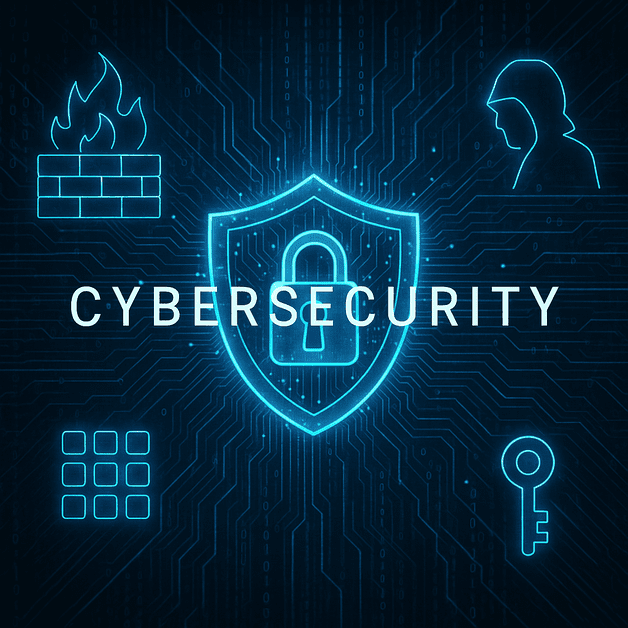In an era where technology evolves at lightning speed, it’s fair to ask: Will cybersecurity become obsolete? With advances in artificial intelligence, quantum computing, and automation, some assume that traditional cybersecurity practices might be replaced—or even rendered irrelevant.
But the truth is far more nuanced. Cybersecurity isn’t fading away—it’s transforming to meet the challenges of a hyper-connected world. This post outlines 7 compelling reasons why cybersecurity remains indispensable and how solutions like Resource as a Service (RaaS) could reshape modern defenses.
1. AI Is Transforming Cybersecurity—But Not Replacing It
Artificial Intelligence is revolutionizing cybersecurity in both defense and offense. AI helps automate threat detection, enable real-time responses, and sift through vast data for anomalies. However, it also empowers attackers.
- AI-driven cybersecurity threats include automated phishing attacks, deepfake-based scams, and self-modifying malware.
- How AI is transforming cybersecurity practices is evident in predictive analytics and intelligent firewalls.
While AI improves efficiency, it still requires human oversight, adaptive strategies, and continuous refinement.
2. Quantum Computing Poses New Risks, Not Obsolescence
Quantum computing has the potential to break widely used encryption algorithms—posing a direct threat to current cybersecurity standards.
- Businesses must start protecting themselves from quantum computing threats by adopting post-quantum cryptography.
- The quantum computing impact on cybersecurity has spurred new research into next-gen encryption models.
Rather than making cybersecurity obsolete, quantum computing is simply raising the bar—requiring new protections and proactive planning.
3. Cyber Threats Are Evolving Faster Than Ever
Despite advancements, cyber threats continue to grow in sophistication. Attackers are leveraging:
- Ransomware-as-a-Service (RaaS)
- AI-generated phishing schemes
- Nation-state cyberattacks
This arms race ensures that advanced cybersecurity protection services remain essential, especially for small and mid-sized businesses that can’t afford a breach.
- Why cybersecurity is still relevant in 2025 boils down to one fact: digital threats are not slowing down.
4. Human Expertise Is Irreplaceable
Even the most advanced cybersecurity tools need expert hands to configure, monitor, and evolve them.
- Adaptive decision-making is necessary to handle unpredictable attacks.
- Zero-trust cybersecurity strategies, while technologically enabled, must be guided by experienced professionals.
Security is not a “set-it-and-forget-it” task. Human judgment, experience, and ethical oversight are key components that no AI or automation can fully replicate.
5. The Rise of RaaS: Accessible, Scalable Cybersecurity for All
Resource as a Service (RaaS) from securitywalay.com offers a flexible, modern way to deploy cybersecurity capabilities without building everything in-house.
Why RaaS Makes Cybersecurity More Relevant Than Ever
- Scalable cybersecurity for businesses: Easily adjust your security posture as your company grows.
- Cost-effective cybersecurity solutions for small businesses: No need to hire an expensive internal team.
- Resource as a Service for cybersecurity management lets businesses access top-tier professionals, tools, and infrastructure on-demand.
Discover how Our RaaS can protect your business today with expert support tailored to your specific risks.
6. Cybersecurity Is Becoming More Proactive
Gone are the days of reactive defense. Modern cybersecurity is proactive, predictive, and adaptive.
Proactive Defense Includes:
- Behavioral analytics to flag suspicious activity.
- Threat hunting to identify dormant threats.
- Zero-trust cybersecurity strategies to eliminate blind spots.
This evolution strengthens cybersecurity rather than diminishes it. Businesses now implement tools that not only detect attacks but predict and prevent them, creating a more secure future.
7. Regulatory and Consumer Pressures Demand Stronger Security
Privacy regulations like GDPR, HIPAA, and emerging data sovereignty laws enforce strict cybersecurity standards.
- Companies must protect sensitive customer data or face legal and reputational consequences.
- Consumers expect secure digital experiences as a baseline.
This increasing pressure reinforces the need for future-proof cybersecurity solutions, rather than eliminating the need altogether.
Real-World Example: RaaS in Action
Imagine a healthcare startup that’s just been targeted by a phishing campaign using AI-crafted emails. Their outdated spam filter fails, and they suffer a data breach.
With no internal security team, they turn to us. Within hours:
- Experts assess the breach and neutralize the threat.
- Zero-trust protocols are implemented to lock down access.
- AI-enhanced monitoring tools are deployed for future protection.
This flexible, expert-led approach offers a level of cybersecurity management that would be impossible to maintain internally on a small budget.
Conclusion: Cybersecurity Is Evolving, Not Ending
So, will cybersecurity become obsolete? Absolutely not.
From AI-driven cybersecurity threats to quantum computing challenges, the digital landscape demands smarter, faster, and more flexible defense mechanisms. Cybersecurity isn’t going anywhere—it’s becoming more advanced, more accessible, and more essential.
That’s why solutions like Resource as a Service from securitywalay.com are so important. They empower businesses to stay protected without breaking the bank.
Take the Next Step Toward Modern Cybersecurity
Cyber threats aren’t slowing down—and neither should your security strategy.
Explore our Resource as a Service solutions or contact us for a consultation tailored to your business.
Let securitywalay.com help you navigate the future with cost-effective, scalable, and advanced cybersecurity protection services.
Internal Links
External References
- Gartner: Future of Cybersecurity (opens in new tab)
- NIST: Post-Quantum Cryptography (opens in new tab)
- Cybersecurity Ventures: 2025 Predictions (opens in new tab)



